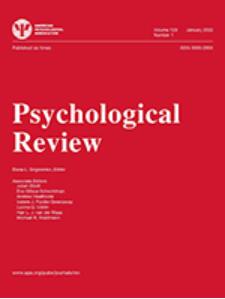儿童并不是语言变化的主要推动者。
IF 5.8
1区 心理学
Q1 PSYCHOLOGY
引用次数: 0
摘要
长期以来,幼儿是语言变化的主要推动者这一说法往往被视为既定事实,并在发展科学和进化语言学中默默地指导着研究。它基于这样的假设:语言变化是由儿童主要犯的语言习得错误引起的。在这里,我们回顾支持这一观点的论点是否经得起逻辑和实证的审查。我们的结论是,虽然儿童不完善的学习确实会导致他们产生输入分歧的语言变体,但没有令人信服的证据表明,正是这些儿童产生的创新最终在语言社区中传播,也没有令人信服的证据表明,语言变化主要是由儿童独有的约束和偏见驱动的。通过揭示过分强调儿童是语言变化的推动者的概念和经验缺陷,我们希望重新平衡这一领域,以更细致入微地理解个体和群体层面的过程如何塑造语言变化。(PsycInfo Database Record (c) 2025 APA,版权所有)。本文章由计算机程序翻译,如有差异,请以英文原文为准。
Children are not the main agents of language change.
The long-standing claim that young children are the main agents of language change is often presented as an established fact, and has tacitly guided research in developmental science and evolutionary linguistics. It rests on the assumption that language change arises from language acquisition errors predominantly committed by children. Here, we review whether arguments in support of this idea stand up to logical and empirical scrutiny. We conclude that while children's imperfect learning indeed leads them to produce input-divergent linguistic variants, there is no convincing evidence that it is these child-generated innovations that eventually spread through the language community, nor that language change is mainly driven by constraints and biases operating uniquely in children. By exposing the conceptual and empirical shortcomings of overemphasizing children as the agents of language change, we hope to rebalance the field toward a more nuanced understanding of how individual- and population-level processes shape language change. (PsycInfo Database Record (c) 2025 APA, all rights reserved).
求助全文
通过发布文献求助,成功后即可免费获取论文全文。
去求助
来源期刊

Psychological review
医学-心理学
CiteScore
9.70
自引率
5.60%
发文量
97
期刊介绍:
Psychological Review publishes articles that make important theoretical contributions to any area of scientific psychology, including systematic evaluation of alternative theories.
 求助内容:
求助内容: 应助结果提醒方式:
应助结果提醒方式:


